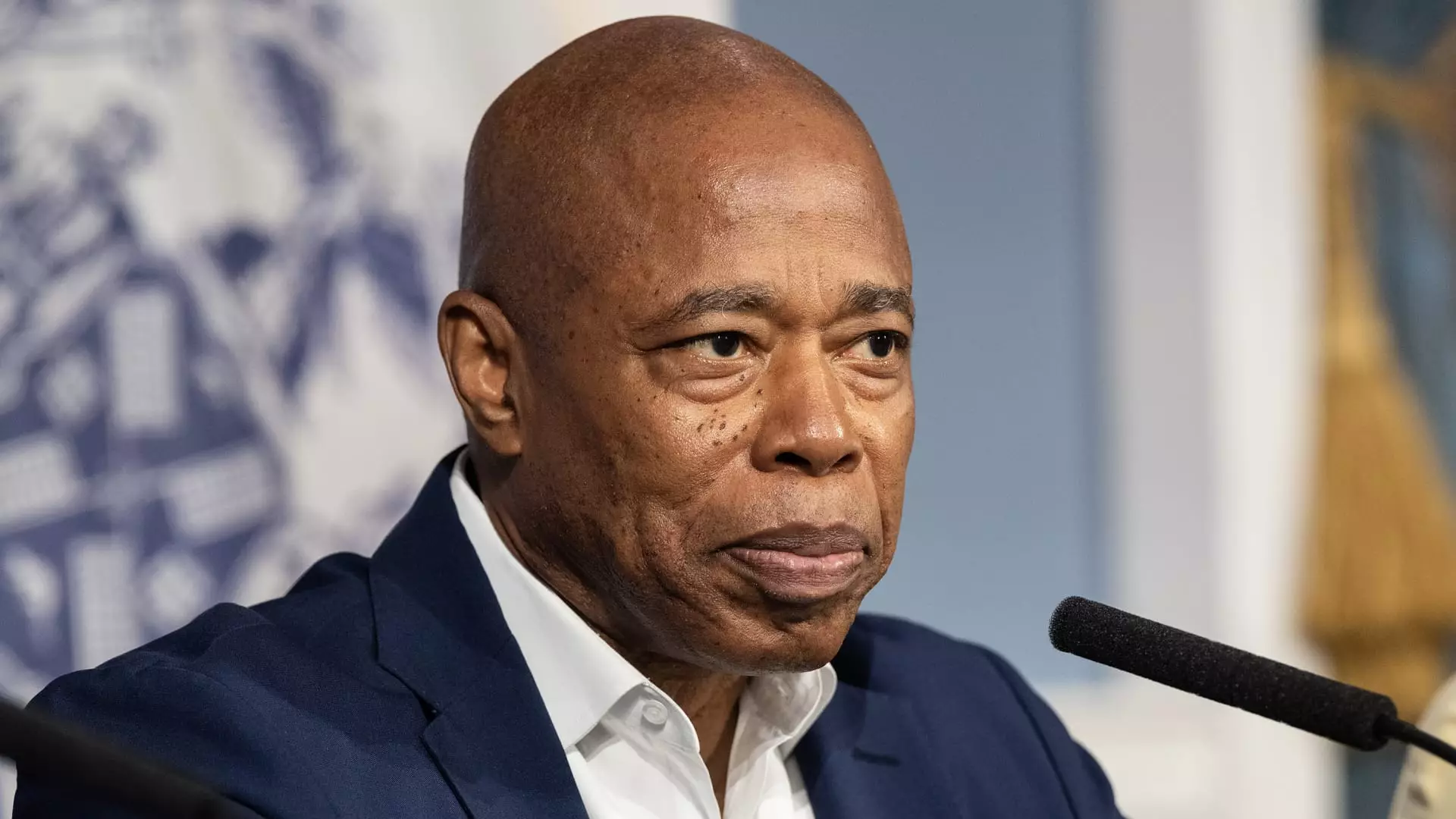The recent statements by President-elect Donald Trump regarding the potential pardon of New York City Mayor Eric Adams have sparked numerous discussions about the intersection of politics, justice, and the perceptions of corruption. During a press conference at his Mar-a-Lago residence, Trump articulated his support for Adams, who is currently facing federal corruption charges. This situation presents a compelling lens through which to examine not only the politics of pardons but also the broader implications of such legal controversies in the volatile arena of American politics.
Adams, a prominent figure within the Democratic Party and vocal critic of some of President Biden’s immigration policies, has been embroiled in allegations of corruption that date back almost a decade. The charges against him encompass the acceptance of gifts—including luxury travel—possibly in exchange for favorable treatment during his tenure. Additionally, the conspiracy charges related to campaign contributions for his 2021 run raise significant concerns about the sanctity of electoral processes and the influence of wealth in politics. Such circumstances not only put Adams in a precarious position but also reflect on the ongoing struggle against political corruption in major U.S. cities.
Trump’s expression of willingness to consider a pardon for Adams, framed as a response to perceived unfair treatment, contributes to the ongoing spectacle of irony in American politics. The incoming president, who previously faced significant scrutiny and legal issues during his own tenure, now finds himself in a position advocating for an ally facing serious allegations. Trump’s suggestion that Adams was unfairly targeted aligns with his historical narrative of “witch hunts” against political figures who challenge mainstream narratives. This raises questions: Are political motivations genuinely at play in Adams’ predicament, or is this narrative merely a strategic maneuver by Trump to consolidate political capital?
Adams has positioned himself as a victim of political crossfire, claiming that his outspoken critique of the Biden administration’s immigration policy has led to the current charges. This narrative of victimhood resonates within certain voter demographics who view corrupt practices as a byproduct of partisan warfare. The manner in which these stories are told has significant implications for public perception. Media framing, particularly in an era characterized by polarized viewpoints and ubiquitous misinformation, plays a crucial role in shaping how citizens understand such cases of alleged corruption.
As the political landscape continues to evolve, the calls for pardons and the discussions surrounding them reveal deeper fissures within American governance. The potential pardon for Mayor Adams, alongside Trump’s well-documented propensity for controversial decisions, underscores the dynamic, often unpredictable nature of political alliances and repercussions. This situation serves as a reminder of the need for transparency and accountability in public office, as both leaders navigate a complex ecosystem of public opinion, legal scrutiny, and political strategy. Ultimately, the interplay of these factors will define not only the fate of Adams but also the broader narrative around governance and trust in the political system.


Leave a Reply